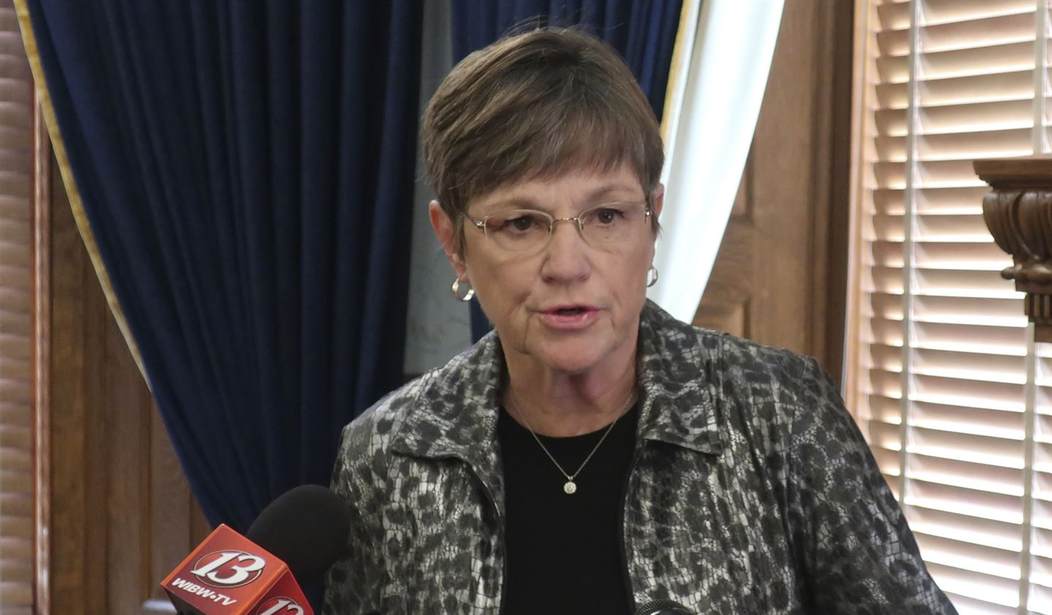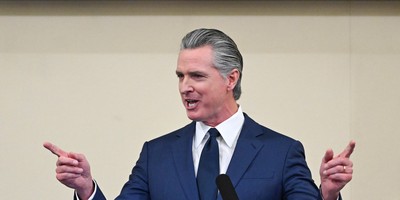This week, liberal Gov. Laura Kelly of Kansas announced her plan to bring ObamaCare’s Medicaid expansion to the state, opening up the program to an unlimited number of able-bodied, working-age adults. But state lawmakers should be very skeptical of the alleged benefits of this “Medicaid For All” plan. Specifically, there are five major myths about the proposal that should be rejected, full stop.
Myth #1: Gov. Kelly’s plan is not ObamaCare but rather a “conservative” approach.
In reality, this plan is nothing short of a full ObamaCare expansion plan. If adopted, it would provide full ObamaCare benefits to ObamaCare-eligible able-bodied adults, using ObamaCare dollars, funding with new national debt. Plain and simple, this is a proposal to bring ObamaCare’s reckless expansion to Kansas.
Myth #2: Gov. Kelly’s plan will “promote personal responsibility.”
Gov. Kelly claims her plan will “promote personal responsibility,” but expanding welfare to able-bodied, childless adults do no such thing. Indeed, it does quite the opposite.
According to a national study by the Foundation for Government Accountability, more than half of ObamaCare expansion enrollees do not work at all.
Why would Kansas expect anything different under this plan? Gov. Kelly would argue it’s because she’s proposing a “work referral” program, under which enrollees will be told, “If you want a job, you can get one!” Just one problem: if enrollees choose to ignore the referrals, they can remain unemployed and keep their benefits, forever.
Perhaps it’s obvious why this is not a serious attempt to promote personal responsibility.
In case it’s not, consider the experience of Arkansas: this type of “work referral” program was tried and failed, with less than five percent of enrollees taking any action at all on referrals. Kansas should expect similar dismal results.
Recommended
Myth #3: Gov. Kelly’s plan will save struggling Kansas hospitals.
States have mistakenly expanded ObamaCare for years in hopes that it would cure what ails their local hospitals. But after years of expansion dollars flowing in, hospitals in expansion states are still struggling.
In Arkansas, for example, hospitals are still closing. The state’s largest state-run hospital has laid off hundreds of employees. The largest hospital in the state reported more than $50 million of operating losses over two years, after years of ObamaCare expansion.
This was never supposed to happen; we’ve spent billions of dollars on Medicaid for able-bodied adults, trying to ensure it didn’t happen. But it is, and Kansas shouldn’t expand Medicaid based on the same false hope.
And if they do, they may actually worsen the outlook for hospitals in their state by shifting thousands of Kansans from private insurance into Medicaid.
Myth #4: Gov. Kelly’s plan is needed to help the uninsured.
If Kansas expands ObamaCare, they aren’t primarily helping the uninsured—they’re helping able-bodied adults who already have insurance shift the cost of their coverage onto taxpayers.
Most of the able-bodied adults who would qualify for Medicaid under the ObamaCare expansion in Kansas—54 percent of them, in fact—already have private insurance. An additional five percent already qualify for virtually free coverage on the ObamaCare exchange.
But by expanding Medicaid, Kansas would shift many of these individuals off of private insurance and onto taxpayer-funded, government-run health care.
Able-bodied adults who are actually uninsured have lots of options to find care or coverage in Kansas, including free charitable clinics, community health clinics, short-term insurance plans, and more.
But make no mistake: If Kansas expands Medicaid, they are primarily expanding to cover able-bodied adults who already have insurance.
Myth #5: Gov. Kelly’s plan does not require a tax increase.
Gov. Kelly says her plan “does not require a tax increase.” Maybe it’s just semantics because Kansas hospitals are volunteering (as opposed to being required) to chip in tens of millions of dollars to help pay for the program. Regardless, this is tantamount to a tax on every patient in the state of Kansas.
Why? Because hospitals don’t print money—they get it from patients who come through their doors and from taxpayers who help subsidize them in various ways. Without a doubt, these costs will be passed on to Kansans.
And perhaps more to the point, ObamaCare expansion in Kansas will almost certainly necessitate a tax increase in the very near future. Medicaid already consumes more than 21 percent of the state’s budget and the hospitals’ pledged contributions will cover only a fraction of the annual costs.
Perhaps the biggest myth of all is that ObamaCare’s Medicaid expansion will work. It has failed everywhere else it has been tried. There’s no reason to think, should they proceed down this path, that Kansas’s experience will be any different.
Nic Horton is research director at the Foundation for Government Accountability.
























Join the conversation as a VIP Member